This is EM Cases Episode 111 Effective Learning Strategies in Emergency Medicine.
With the rapidly evolving and expanding specialty of Emergency Medicine, learning in Emergency Medicine should be thought of as a journey, not a destination. In this episode, a followup to Episode 98 Teaching on Shift, with the help of Jonathan Sherbino, Assistant Dean of Education at McMaster University and Rick Penciner, the head of education at North York General Hospital, we explore the most effective learning strategies while debunking 5 myths in learning, and answer questions such as: How do we maximize our learning in the face of an ever-growing body of knowledge and procedure skill set so that we can become better doctors? What can we learn from the Dunning-Kruger effect? How do we best minimize distractions while we learn? How do we improve retrieval strength for easy recall? How can deliberate practice inform learning procedures? How can social learning improve our knowledge base? and many more…
Podcast production, sound design & editing by Anton Helman
Written Summary and blog post by Alexander Hart & Shaun Mehta, edited by Anton Helman June, 2018
Special thanks to Brent Thoma, Anand Swaminathan, Salim Rezaie
and Jeff Ridell for their contributions to this podcast
Cite this podcast as: Helman, A, Sherbino, J, Penciner, R. Effective Learning Strategies in Emergency Medicine. Emergency Medicine Cases. June, 2018. https://emergencymedicinecases.com/learning-strategies-emergency-medicine/. Accessed [date].
It may be true that as a species, we humans aren’t the best at learning. Indeed, we forget easily. We all know the feeling of frustration that comes with racking one’s brain in the vain attempt to retrieve a small but important piece of information. Especially while in the middle of a shift! What’s more, trying to stay abreast of all the new information that is published constantly can be overwhelming. The ratio between what we know and what we can know seems to shrink every day. Here then are some theory, tips, tricks, advice, pearls and pitfalls on how we can be the best learners possible.
5 Learning Theories that are myths
There has been a lot written over the years about learning theory. While some are backed by strong evidence, others have been relegated to the status of myth. Some examples include:
Learning Styles: While you may consider yourself a visual, auditory (or other perceptual mode) learner, there is no evidence that individuals learn more effectively in one perceptual mode over another. Rather, multimodal learning seems to be for effective than learning in a single mode.
The Adult Learner: The healthy adult brain is no different in its neuronal pathways for learning than the brains of younger people. Furthermore, there is no evidence that we are better motivated or more task oriented as we enter adult life.
Learning Pyramind: This theory holds that we can predict the percentage of retained knowledge based on the method used, be it reading, lectures, teaching others, etc. The learning pyramid theory unfortunately is not backed by any reproducible evidence.

The learning pyramid theory for retention rates has never been studied rigorously.
10,000 Hour Rule: This theory is based on the notion that practice makes perfect. This is only partially true. Only perfect practice makes perfect. Without coaching, focused teaching, or deliberate practice one may be doomed to simply repeating ineffective technique ad infinitum. This does not lead to expertise.
Digital Natives: Being born in an age permeated by information instantly accessible on a technologically advanced platform does not appear to impact an individual’s ability to process a high flow of digital content.
Perhaps the greatest myth is self-perpetuated. The novice learner who believes they “know it all” are in fact in danger of falling into the Dunning-Kruger trap. We do not know what we do not know!
So what is learning?
On a biological level, learning is the process whereby neural pathways form connections and are strengthened. It involves attention, storage and retrieval of knowledge, skills, behaviours and attitudes.
There are ways to maximize information storage and retrieval: Effective learning strategies
How best can we encode and store the information presented to us in the form of books, articles, podcasts, lectures or sim sessions into our short term memory?
Knowledge is constructed, not transferred. It is built around information, past experiences and the surrounding environment. There is no one way to achieve this. However here are some tips to enhance knowledge construction:
Attention is key
Our sensory memory is constantly being stimulated through the different senses. We ignore most of these inputs. Optimize the “coding moment” by focusing on key points and minimizing distractions. This is the basis for the Cognitive load theory in which suggests focusing on the intrinsic (essential) actions while minimizing extraneous (distracting) items.
Minimize Distractions
As a Teacher. Limit extraneous images or words on slides during presentations. Attempt to avoid diving too deep or too broadly on a given teaching subject. Focus on digestible points.
As a Learner. Prepare for the learning moment. Compartmentalize other pending tasks in order to focus on the teaching or coaching on offer. Also, give your teacher clear learning goals on which they can focus.
As a Clinician. Reduce the intrinsic load of a given task by automating it with memory aids. Examples include the Broselow Tape and clinical decision tool apps like MDCalc.
Storage of new information
Once the data has been processed, the time has come for the learned information to become stored as memory. Not all memories are created equal, so it is important to optimize this step.
Multimodal learning is essential. In order to build a rich neural network surrounding a given topic, seek out inputs from multiple different stimulating sources in different contexts (lectures, podcasts, textbooks, rounds, etc.). This allows for abstract concepts to be linked to concrete frameworks. In this way, we can more easily recognize challenging clinical patterns when a patient does not present in the typical fashion.
There should be some discomfort during learning. Emotional activation plays a large role in memory formation. If learning is passive or seems easy, it loses efficacy. There requires a certain amount of stress that allows the learner to become more engaged in a positive valence but without being overwhelmed.
Learn to Improve Retrieval Strength
1. Distributed, spaced repetition
Remember to account for the forgetting curve! Our long term memory is seemingly infinite. That does however leave a lot of space in which things can get lost. We can predict this loss of readily available information on a “forgetting curve”.
Countering recall decay. It is crucial that you optimize retrieval by actively reminding yourself to re-process that which was encoded earlier. Space out multiple study or practice sessions over an extended period of time. Use the 10% rule: review material at an interval equal to 10% of the time you need to retain it for. A study by Donovan in 1999 showed that students using spaced repetition were able to outperform their colleagues by 67% with the same total study hours.
2. Interleaved Learning
We in the EM community tend to be trained and to want to learn by mass practice. That is, focusing on a skill or competency intensively until we have mastered it. This isn’t how we practice however, as each patient comes with a whole different set of issues requiring varying points of knowledge. Interleaving in learning allows us to compare different concepts in different contexts. Mixing old, current and upcoming information from a subject during the same study or practice session has a positive impact on strengthening future learning retrieval. This concept has implications for curriculum design, promoting more heterogeneous models.
3. Retrieval Practice makes perfect!
This concept goes back to making learning uncomfortable. Learning should be effortful – the struggle to remember an answer will increase the retrieval strength of that information. There are a few ways to achieve this:
a) Test Enhanced Learning: Test yourself with flashcards, quizzes, MCQs and practice orals. This is not just a way to assess knowledge, but to strengthen your recall ability.
b) Adopt a growth mindset and commit to change:
- Learn from your mistakes by engaging with peers on shift or online.
- Email yourself practice pearls for later review after attending a lecture or listening to a podcast.
- Assess whether your current self has adopted the changes that your past-self took on while learning, and commit to changing your practice.
c) Meta-Cognition & Chart Reviews: Thinking about thinking can help to avoid some of the cognitive traps that hinder learning such as the Dunning-Kruger effect. Being aware of our biases may help us avoid cognitive errors. Getting involved in chart reviews is a great way to challenge one’s own way of thinking.
d) Reflection with a Coach: Find a coach or mentor to help identify gaps in your own thinking and competencies. It is important that these assessments are non-judgmental and unbiased, so choosing a coach must be done with care.
Don’t go in alone! Learning is social phenomenon
The Bandura Social Cognitive theory postulates that we learn best from the observation of others and that when there is accountability to other individuals our learning thrives.
Learning from the swarm – it’s not just for the bees.
Swarm-based medicine involves crowd-sourcing important medical questions through social media networks and communities of practice which helps facilitate the generation and distribution of knowledge. It’s the foundation of FOAMed!
Learn more about learning via social media in Episode 46 Social Media and EM Learning
Embrace that learning is lifelong
The importance of learning to unlearn: given the dynamic nature of medicine, we must continuously learn new concepts and re-prioritize as our practice evolves.
So how do we make sure we are maintaining our intellectual curiosity and an effective pursuit of knowledge throughout our careers?
Learn to learn on shift!
As a Trainee:
- Ask yourself with each shift, “What did I learn today?” and write it down to review at a later date
- Leave your comfort zone; remember to challenge yourself
- Shift unrecognized learning into recognized learning by asking your supervisor “why” questions (clinical reasoning) as opposed to “what” questions (which can be found in a textbook)
- Be skeptical; question the evidence and look it up for yourself
As a Staff:
- Be deliberate in teaching
- Learn from patients as well as consultants
- Audit your own charts; look up what happened to your patient and reflect on what you could have done better
- Form groups with your colleagues and review each other’s charts; social learning again is key
Elaboration – Throw away that highlighter!
The technique of elaboration in education allows you to merge new information into past experiences and incorporate both into a larger schema. Don’t be mindless in your learning by simply taking minutes of a talk or highlighting an entire chapter of a book.
Change the routine. Vary the how, where and when of study or practice to enhance retrieval. Change your environment and time of day you study. Don’t be afraid to break habits.
Stop and think. Pause during a seminar or lecture or reading and ask yourself “what have I just learned and how does it fit with what I already know?”
Be skeptical. Approach your learning with a critical eye. Do the same with any literature you come across.
How to manage information overload
By the time you have finished reading this summary, there will probably be a new podcast to listen to, a new journal edition hot off the press and 4000 tweets and re-tweets that will all be clamouring for your limited attention. How do you stay abreast of all that new knowledge?
Great blog post at LITFL on Managing Information Overload in the Age of FOAMed
Scanning activities: Set up a process for yourself where you regularly can scan the literature quickly (e.g. using online resources) and dive deeper accordingly. Be sure to include primary sources here and not just pre-digested thoughts from others.
Suggested resources for scanning activities include:
Learning procedures – Why “YouTube one, do one, teach one” might not be the best approach
Although similar to learning new information in many ways, there are some unique pearls to improve learning of procedural skills.
Deliberate practice involves not only repetitive performance of intended cognitive or psychomotor skills in a focused domain, but the coupling of this with rigorous skills assessment and feedback.

Care of Dr. Salim Rezaie, REBEL EM
Requirements for deliberate practice (McGahie et al. 2010)
| Highly motivated learners |
| Well-defined learning objectives |
| Appropriate level of difficulty |
| Focused, repetitive practice |
| Rigorous, reliable measurements |
| Informative feedback from mentors |
| Monitoring, error correction |
| Evaluation |
| Advancement to the next task |
Simulation training is a key component of learning ED-specific procedures. It allows one to deconstruct and compartmentalize a task into smaller steps. This practice helps change a disorganized approach to a more automated one that will enable success in a clinical scenario.
Mental preparation and visualization. Visualizing the specific steps as well as the physical environment in which a procedure or team-based activity is performed in advance of it may help improve learning and performance.
The future of Learning in EM – What to look for and what to hope for
Looking down the road, our experts hope that we can break away from the common practice of the individual learning on their own in a cubicle and limiting one’s CME to self-reporting attendance at a conference or lecture. Rather, it is hoped that CME will move towards more dynamic and group-based activities that will entice the learner to build longitudinal educational communities and networks on digital platforms that will continue to evolve. This will hopefully foster a better bulwark against the creep of “not knowing what you don’t know” as well as increase accountability within groups.
Take home points for Effective Learning Strategies in EM
- The theories of Learning Styles, The Adult Learner, The 10,000 Hour Rule and Digital Natives have little if any evidence to support their claims
- Knowledge is constructed, not transferred; learning needs to be effortful, active and often uncomfortable
- Multimodal, distributed, spaced interleaved learning improves retrieval strength
- Retrieval practice with test-enhanced learning, commitment to change and coach-assisted chart reviews improves retrieval strength
- Don’t learn on your own; social learning within a community of practice enhances learning
- Employ elaboration techniques when studying
- Use scanning activities to avoid information overload
- Employ deliberate practice through simulation using focused repetitive practice, feedback, error correction and evaluation for learning procedures and team-based skills
Other FOAMed Resources on Effective Learning Strategies in EM
Dr. Sherbino’s Keylime podcast
ALiEM’s Education Theory Made Practical eBook
Justin Morgenstern reviews Make it Stick: The Science of Successful Learning on First10EM
https://www.aliem.com/2014/04/self-regulated-learning-forgetting/
http://stemlynsblog.org/the-pursuit-of-mastery-through-deliberate-practice/
http://stemlynsblog.org/information-overload-rcem15/
https://emcrit.org/racc/thoughts-on-deliberate-practice-expertise/
Drs. Helman, Sherbino and Penciner have no conflicts of interest to declare
References
- Brown PC, (III) HL, McDaniel MA. Make It Stick – The Science of Successful Learning. Harvard University Press; 2014.
- Donovan, J. J., & Radosevich, D. J. (1999). A meta-analytic review of the distribution of practice effect: Now you see it, now you don’t. Journal of Applied Psychology, 84(5), 795-805.
- Gooding HC, Mann K, Armstrong E. Twelve tips for applying the science of learning to health professions education. Med Teach. 2017;39(1):26-31.
- Van hoof TJ, Doyle TJ. Learning science as a potential new source of understanding and improvement for continuing education and continuing professional development. Med Teach. 2018;:1-6.
- Ericsson KA. Deliberate practice and the acquisition and maintenance of expert performance in medicine and related domains. Academic medicine. 79(10 Suppl):S70-81. 2004.
- Putora PM, Oldenburg J. Swarm-based medicine. J Med Internet Res. 2013;15(9):e207.
- Ericsson KA. 2006. The Influence of Experience and Deliberate Practice on the Development of Superior Expert Performance. In: Ericsson KA, Charness N, Feltovich PJ, Hoffman RR. The Cambridge Handbook of Expertise and Expert Performance. Cambridge. Cambridge University Press; 2006.

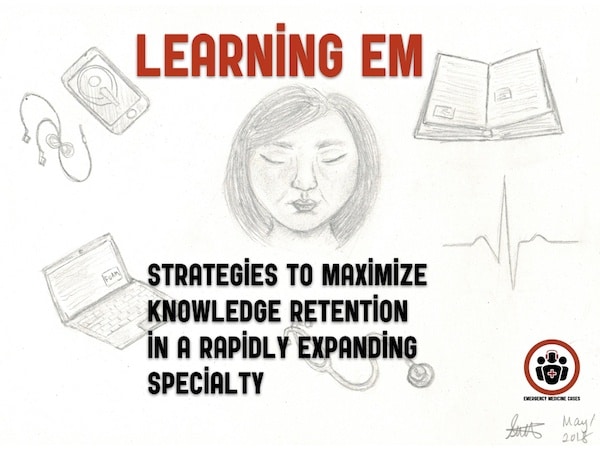

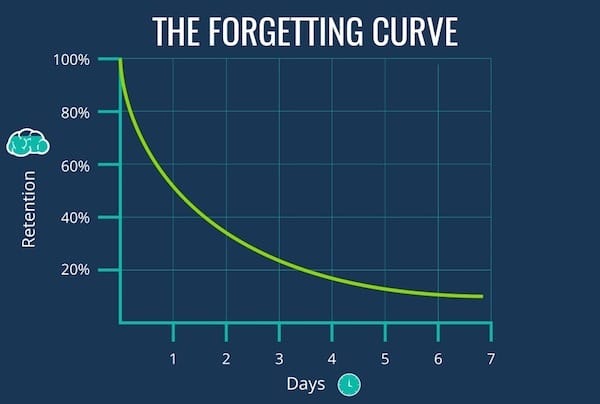
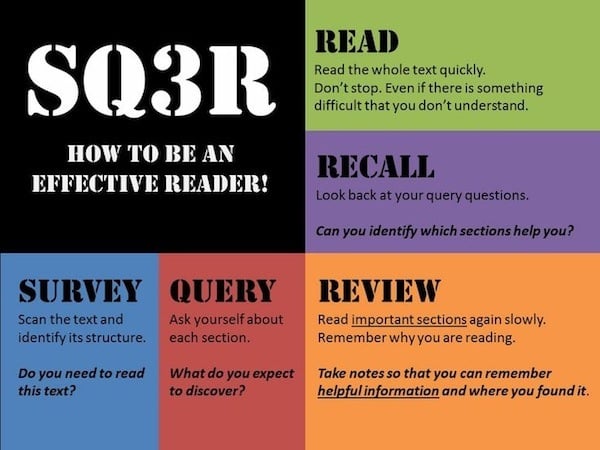
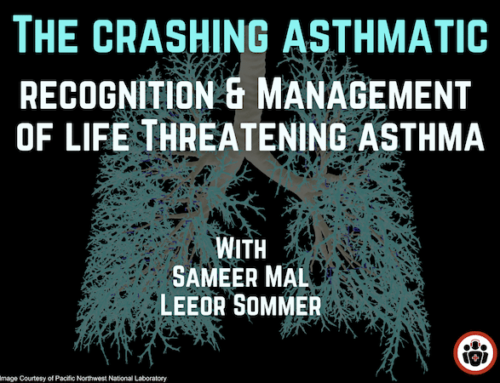
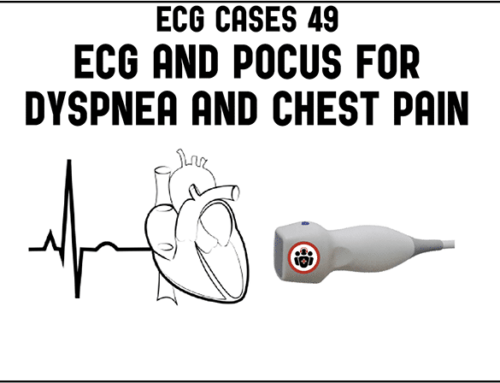
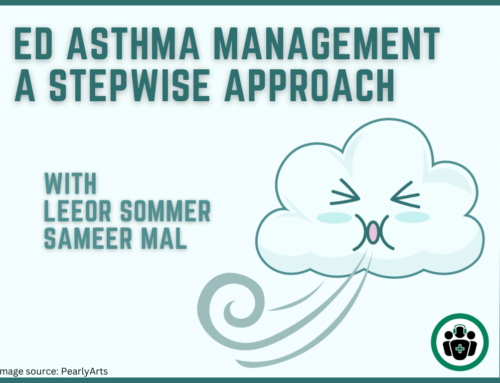
Leave A Comment